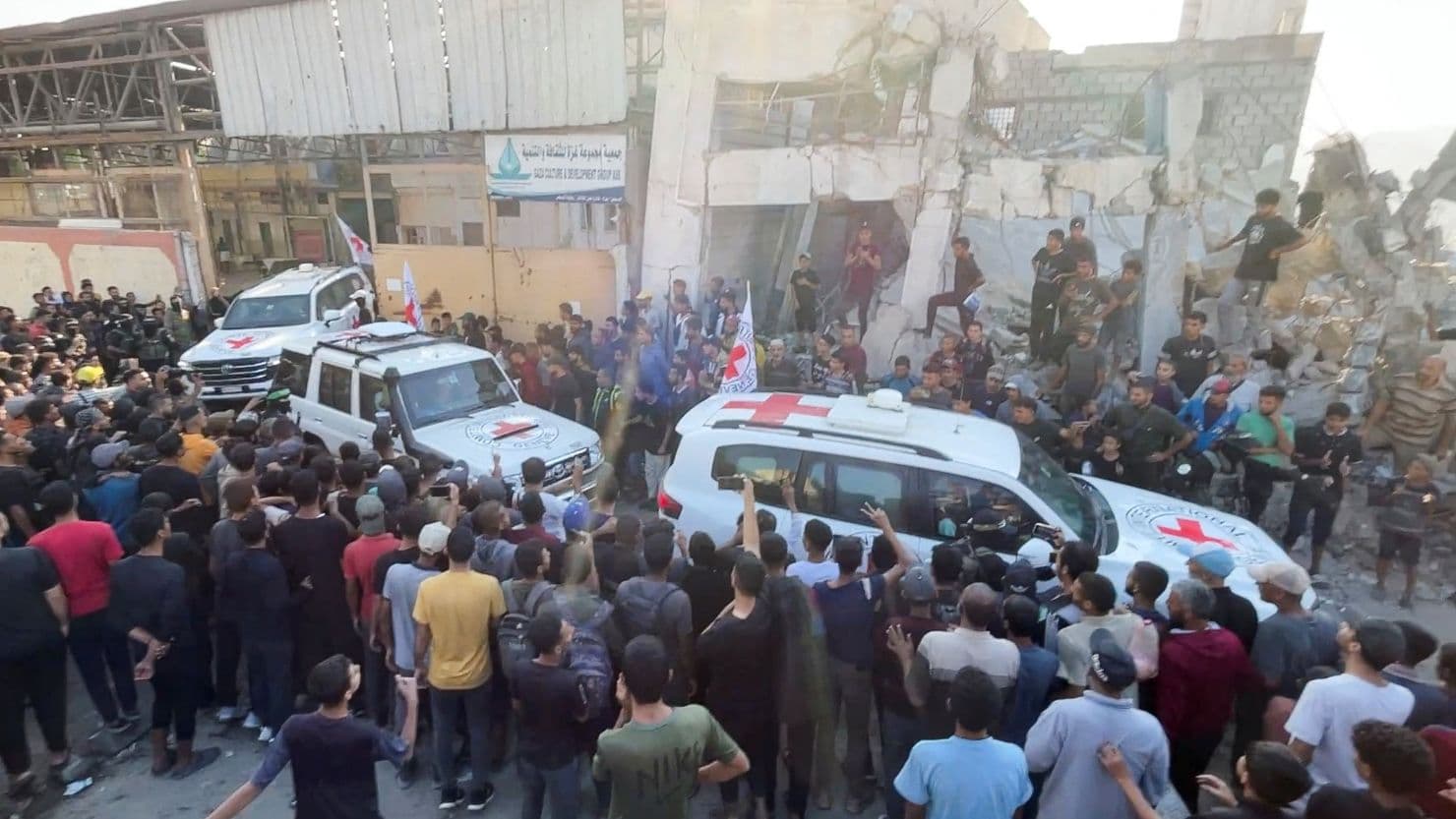Missionary Ricardo Fuxman, from Ra'anana, told Misiones Online how Israel is experiencing the first hours of the end of the war with Hamas. He described a tired but resilient society and expressed his hope that the truce will mark the beginning of a lasting peace.
From Ra'anana, a city located 20 kilometers from Tel Aviv and 60 from Jerusalem, missionary Ricardo Fuxman, who has lived in Israel since he was 18, described how the country is experiencing the first hours after the end of the war between Israel and Hamas in the Gaza Strip was announced. The truce began with the release of 20 Israeli hostages, who remained in the hands of the Islamist group for more than 700 days, including three Argentines.
“This round is over”
“From what we know here, what was published is the end of the war. In other words, the conflict isn't over, but this round is over,” Fuxman explained during an interview with Misiones Online. He said the demobilization of thousands of reserve soldiers who are returning home has already begun.
The missionary noted that the ceasefire does not imply a definitive peace, but it opens a new political scenario:"There is a conjunction of many interests pressuring Israel to cease fire and withdraw. This fact opens a very interesting political horizon," he analyzed.
Among the most significant diplomatic moves, he mentioned the conference convened in Sharm el-Sheikh, Egypt, with the participation of more than twenty Arab leaders."The future of Gaza will be discussed. The idea is to install a government of technocrats, with minimal Palestinian participation, and to remove Hamas from political office. The goal is to demilitarize and prevent new threats."
“We don’t have to love each other, but at least not punish each other every morning.”
Fuxman expressed a cautious but hopeful wish: “ We don’t have to love each other, but it’s enough that we don’t punish each other every morning. That would already be a great achievement. ”
He recalled that the war affected the entire country, both due to its small geographic size and the proximity of its cities. “Everyone knows someone who lost a family member or had a loved one fighting. And those who didn't have that, adopted them. In some way, we're all connected.”
Living in war and resisting normally
The missionary described how Israeli society attempted to sustain daily life during the two years of conflict: “ Man's survival instinct knows no bounds. In the last year and a half, if you went to a good restaurant at lunchtime, you couldn't get a table. The movie theaters were almost at their normal capacity. ”
However, he admitted that the routine was fraught with constant risk:"It was interrupted by alarms warning of missiles launched from Gaza, Lebanon, or Yemen. Everyone had to run to shelters."
Universities were the hardest hit, as many of their students were enlisted in the military. Classes continued, but with fewer students, because many were deployed. Primary and secondary schools, on the other hand, tried to maintain normal operations, with municipal reinforcements and specialized personnel.
Surprisingly, the economy didn't collapse:"We had two years of war, and the currency appreciated; the stock market rose. Now that there's talk of an agreement, everything is going up even more. Even I, who studied economics, can't explain it."
“People weren’t happy”
Although social activities continued, Fuxman said the public mood was somber. “ The restaurants were full, but people weren't happy. Every morning, when you read the newspaper, you'd find out that three children had died or someone had lost a hand. That affects you.”
Celebrations were more subdued: “ Weddings and engagements were held with fewer guests. People weren't in the mood to go to places where the celebrations were filled with music. ”
Tourism and international travel also declined, as many airlines suspended flights to Israel.
Hostages and the emotional impact
The interviewee highlighted the relief generated by the release of the last 20 hostages, including two young people who had not been heard from since October 2023. “There were serious doubts about their physical and emotional state. Just two days ago, Hamas confirmed that they were alive. It was one of the few good news we had during this time.”
“Two Jews, three opinions”: the internal debate on the war
Asked about how Israeli society perceives international criticism of the bombing of Gaza, Fuxman acknowledged that there are diverse positions."There is a broad sector that has been calling for a cessation of operations for over a year, but they are more sensitive to what is being said outside."
But he defended the army's actions in the face of accusations of attacks on hospitals: " If you saw the amount of intelligence material found in the basements of hospitals, you would understand why they were military targets. Hamas knew that Western morality would prevent it from attacking hospitals, and that's why it set up its structure there."
At the same time, he admitted that “mistakes are made on the battlefield” and that “people on both sides who were not directly involved died.”
Regarding the use of the term “genocide,” Fuxman was categorical: “It’s a word that pains us. The Jewish people were the ones who coined the term because they suffered. This wasn’t an attack on us because we were Arabs, but a response to an attack we had received.”
“It is possible to live in peace”
The missionary recalled that Israel has maintained peace agreements with Egypt and Jordan for decades. “There are no cultural delegations or exchanges, but there are no deaths either. It's a silent, but real, peace.”
In his final reflection, he warned that the conflict with Hamas has a religious component that makes any understanding difficult.

